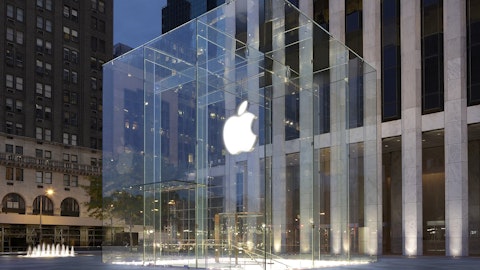My regular readers know that my brother’s Facebook Inc (NASDAQ:FB) IPO investments were the final straw that motivated my writing. He knows little of tech and nothing of software development. There’s one important difference, however, that sets apart my brother from some investors I’ve encountered online: you see, my brother will admit when he is clueless.
Let’s see what we can glean from the investors that know it all, starting with one of the most contentious investments of the year.

The iPod was revolutionary. The iPhone kicked off the smartphone industry. The iPad made tablets something that people wanted to buy. You didn’t see any of them coming.
Deliberately.
There are great reasons Apple could be a buy or a sell, but relying on some herd-inspired guarantee around “innovation” is an offensive lie to software developers and a lie to yourself. Apple intentionally operates as a black box. Unless it’s from an NDA-violating Apple employee, the illusion of certain innovation deserves more doubt than trades.
It’s time to admit we don’t know if Apple TV will be a hit. It’s time to admit that a former $700 price tag does not guarantee a good deal on the company today. It’s time to treat money like it’s worth something more concrete, and act on actual facts like the following:
- The latest earnings report was generally positive
- Chinese sales were strong last quarter
- Struggles are ongoing for smartphone market share
- $137 billion is sitting idly but pretty
- Though Apple operates as a black box, competition sometimes doesn’t. We can gauge that, rule out possibilities or consider threats, and evaluate advantages
It’s not as over-hyped, but it’s still a business. Whether you’re struck by the fad of predicting doom or you’ve been spurred toward ownership by trendy rumors of an inevitable rebound, it may behoove you to take that first step and admit what you don’t know. Then, when you’re ready to dig into real reasons to buy and sell, The Motley Fool’s analysis on Apple will be waiting. Their senior technology analyst and managing bureau chief, Eric Bleeker, has outlined its strengths and weaknesses along with clear criteria for informed judgment.
Not Playing With Video Games Anymore?
Don’t you know? Games are dead. Everyone knows that. My hindsight is 20/20, so even if I didn’t know what I was talking about, I certainly would have past numbers to let me keep talking.
My favorite pieces of evidence to that point have been a summary of Q4 and a screen-captured chart showing the abysmal performance of video games since 2008 (courtesy of an investor convincing me that games are a terrible investment).
The best thing? He’s right. Stock prices have fallen for big game companies, and there’s a clear past to show that. However, I’m a fan of investing legend Phillip Fisher, and my software development background — in games — gives me insight into what he’d agree is the most important factor in tech investments: internal operations. For the other 85% to my Warren Buffett, I recommend seeking valuations and other calculations at Jason Hall’s blog.
In video game development, internal operations mean production methodologies, product management, gamer community management, game design balance, and much more. This is why companies like Nintendo Co., Ltd (ADR) (PINK:NTDOY) and Sony Corporation (ADR) (NYSE:SNE) are having a tough time adjusting to the new landscape of games: huge companies are inherently more difficult to re-organize.





